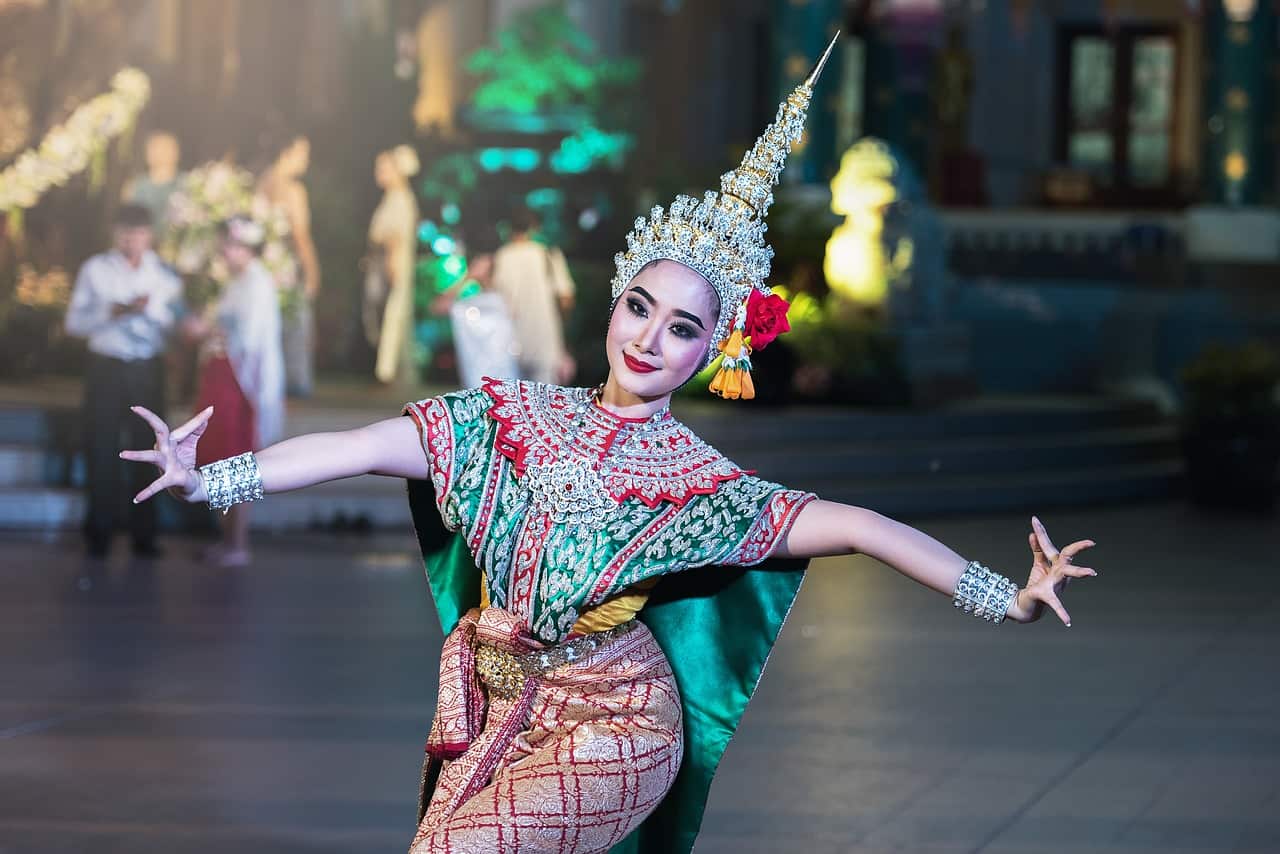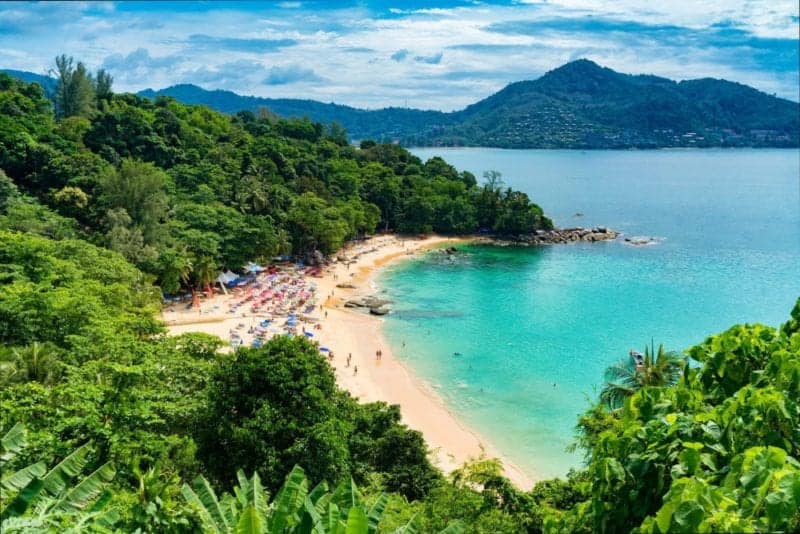Safest Asian Country To Visit
Asia has an immense allure for travellers worldwide, and it’s known to have some of the world’s most popular tourist destinations. It is incredibly diverse, boasting a rich tapestry of cultures, languages, religions, and traditions.
Asia has some of the world’s oldest civilisations and historical sites. The continent has breathtaking natural landscapes, from the Himalayan mountains to tropical beaches, lush jungles, and serene rice paddies.
Asian cuisine is celebrated worldwide for its diversity, flavours, and authenticity, where each region offers a unique culinary experience, but is Asia safe?
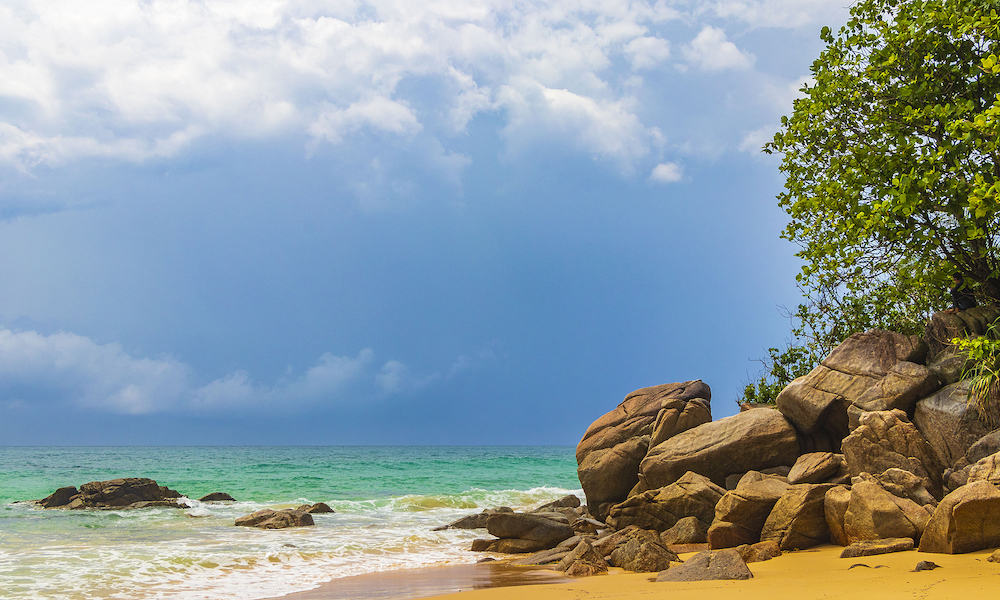
When it comes to travelling to foreign places, your top priority is making sure you are safe. Deciding which is the safest Asian country to visit depends on various factors, including your travel preferences and the safety aspects most important to you.
These may include countries with consistently low crime rates, a lack of civil unrest and political stability. Places with strong gender equality and good cultural attitudes are significant for young, female, solo travellers.
A well-developed infrastructure can be a considerable decision-maker; those who prefer a more upscale experience to an island-like lifestyle would require reliable public transportation, well-maintained roads and a suitable area to shop and enjoy their time.
Countries prioritising tourism often have policies and services to support travellers, and access to quality healthcare could be crucial.
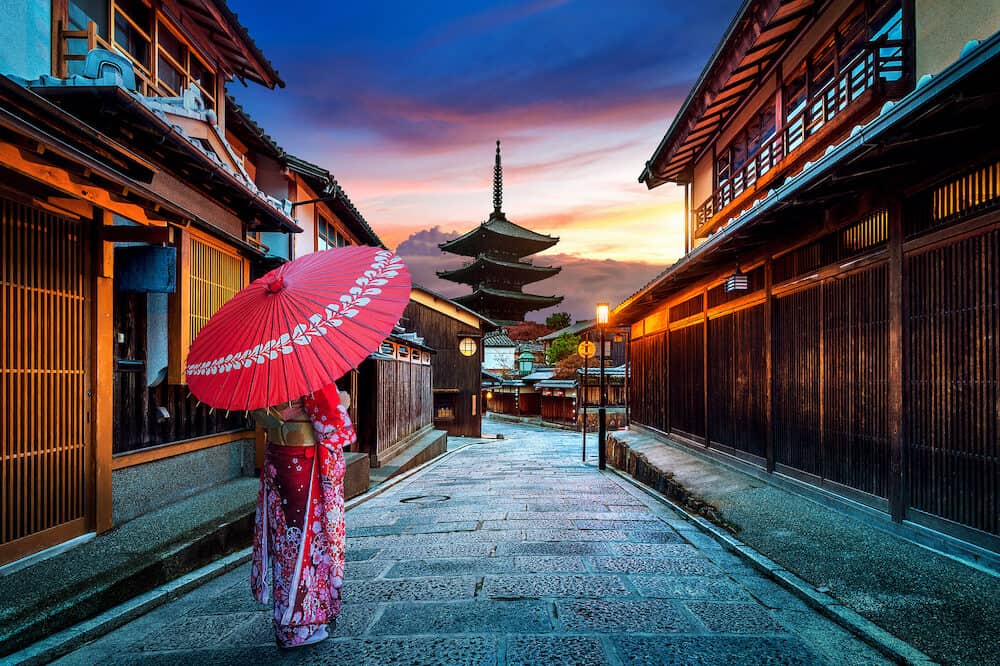
Some Asian countries received a high-ranking Global Peace Index score. Japan was another Asian nation known for its peaceful society, low crime rates, and strong rule of law.
Taiwan often ranked high on the GPI for its safety, stability, and low crime rates, along with South Korea, which is also considered relatively safe and peaceful with efficient law enforcement.
These countries are great for travelling families, couples and individuals whose primary concern is safety and require a less precautionary experience throughout their travels.
Like the many factors mentioned above, it all comes down to you, your preference, and the level of safety you are prepared to handle during your time abroad. Below, we have rounded up 12 of the safest countries in Asia to travel to:
Plan your trip?
Avoid hidden fees in the exchange rate while withdrawing from millions of ATMs abroad, paying in restaurants and shops, and buying your accommodation and flights using the Wise Card. You can hold up to 40+ currencies at once to spend in in over 150 countries, and convert them in real time with the free Wise app.
Need help planning your trip from start to finish? Check out these helpful links:
- Cheap flights
- Savings on accommodation from hostels to luxury hotels
- Affordable car rental options
- Affordable sightseeing tours and day trips
- Travel Adapter – All in one so you don’t have to carry a bunch around
- Don’t be silly and forget Travel Insurance! Get hurt and you’ll regret it…
This post contains some affiliate links for your convenience. Click here to read my full disclosure policy. You can also read our content/editorial policy here.
Japan
What is Japan like?
Japan is a traditional nation that boasts a rich cultural heritage with historic temples, shrines, and samurai castles alongside futuristic cities that house highly gracious and hospitable people.
The Japanese are known for politeness, hospitality, and respect for others. The country is celebrated for its delicious cuisine, including sushi, ramen, and tempura, as well as its world-famous tea ceremonies.
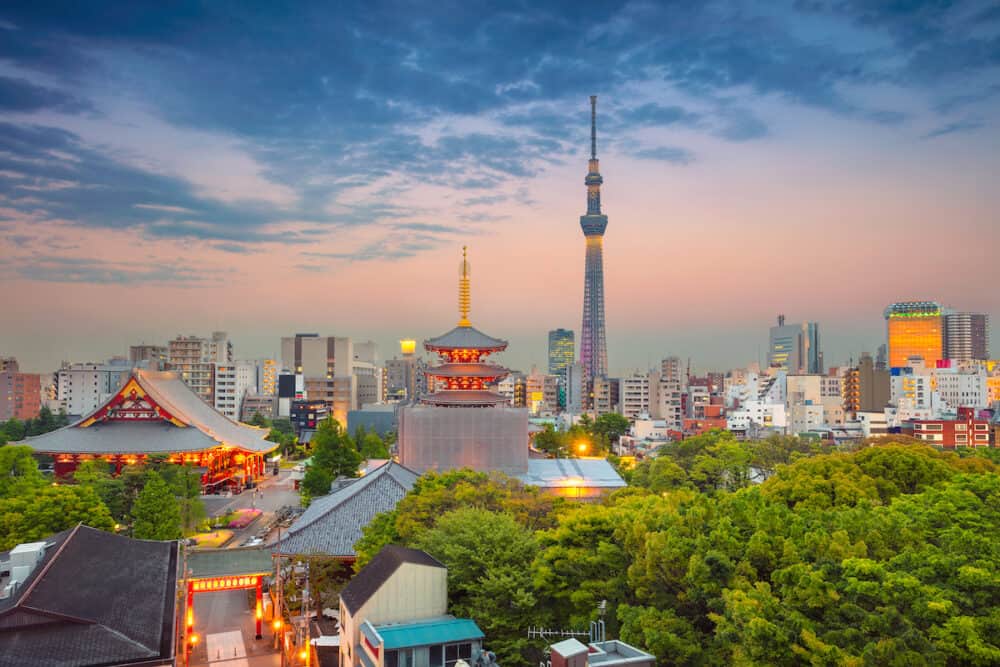
What can you do there?
- Explore Tokyo: Tokyo, the capital city, is a vibrant metropolis known for its neon-lit streets, skyscrapers, and exciting neighbourhoods.
- Visit Kyoto: Kyoto is a cultural treasure trove with countless temples, gardens, and traditional tea houses.
- Enjoy Nature: Japan offers diverse natural beauty, from cherry blossoms in spring to stunning fall foliage. Explore places like Mount Fuji, the Japanese Alps, and national parks.
- Experience Onsen: Relax in hot springs and ryokan for a taste of Japanese hospitality and wellness.
- Historical Sites: Discover ancient history at places like Nara, home to friendly deer and historic temples.
- Cultural Experiences: Participate in tea ceremonies, watch traditional Noh or Kabuki theatre, and learn about samurai culture.
- Culinary Adventures: Savour sushi at Tsukiji Fish Market, try regional specialties and explore the world of Japanese sake.
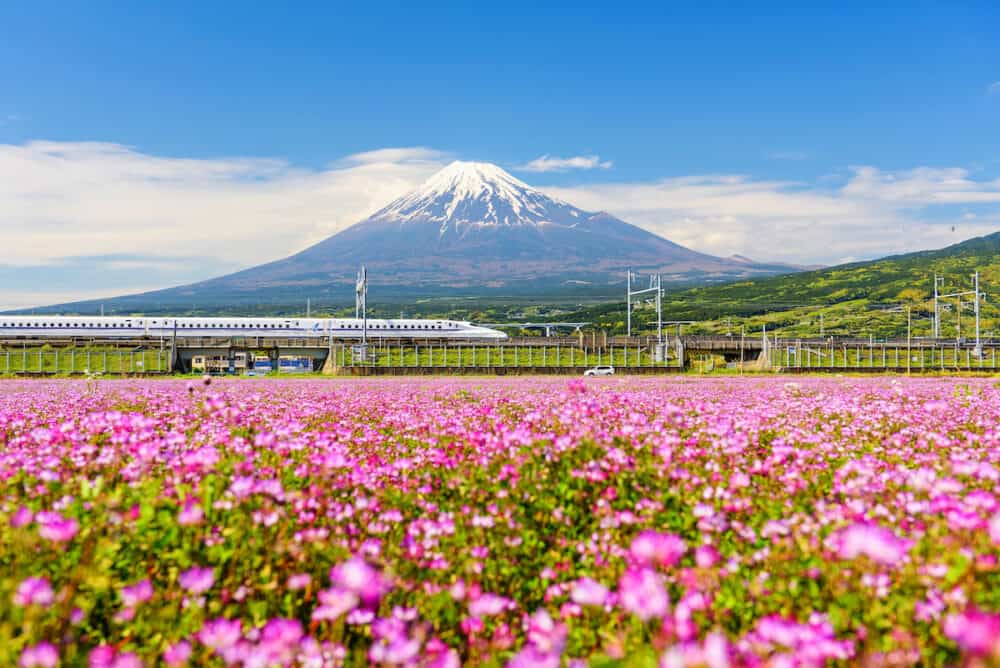
Why is Japan Safe to Travel:
Japan’s reputation as one of the safest Asian countries for travellers is well-deserved.
- Low Crime Rates: Japan consistently reports some of Asia’s lowest crime rates.
- Efficient Law Enforcement: Japan has a well-trained and professional police force dedicated to maintaining public safety.
- Safe Transportation: Japan’s public transportation systems, including trains and buses, are known for their safety, cleanliness, and punctuality.
- Cultural Respect: Their society strongly emphasises respect for others, social harmony, and order.
- Low Drug Use: Japan has relatively low rates of drug use and drug-related crimes.
- Efficient Disaster Preparedness: Japan is well-prepared for natural disasters like earthquakes and typhoons, with robust infrastructure and disaster management plans.
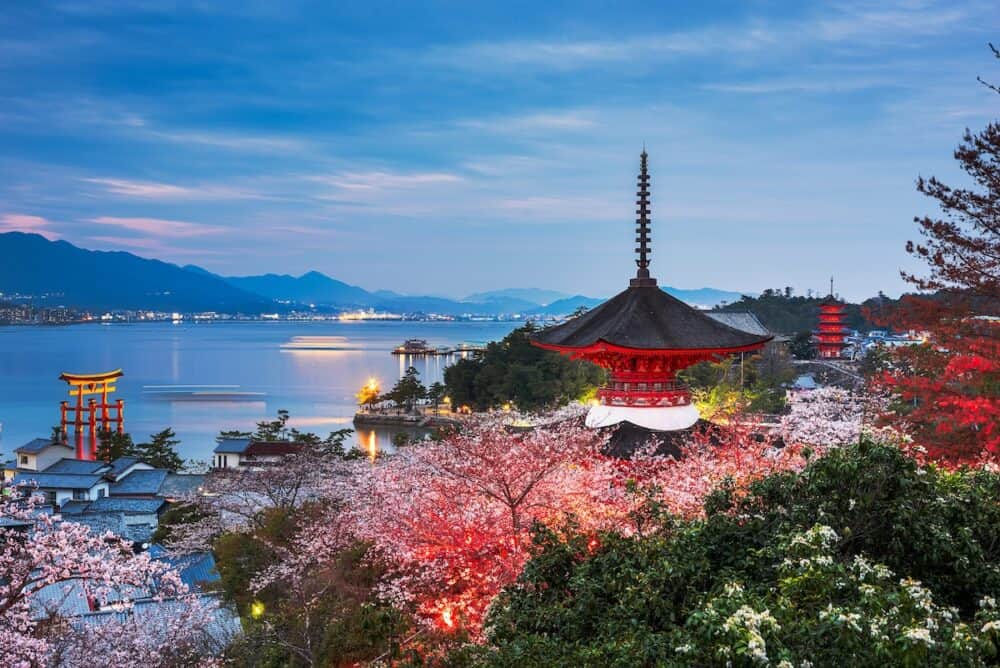
South Korea
What is South Korea like?
South Korea is one of the safest countries in Asia. It boasts a unique cultural identity shaped by its long history. Traditional palaces, Buddhist temples, and hanbok-clad locals coexist with cutting-edge technology, K-pop music, and a vibrant pop culture.
The country’s stunning landscapes, including picturesque mountains, lush green valleys, and coastal beauty, provide a diverse backdrop for exploration.
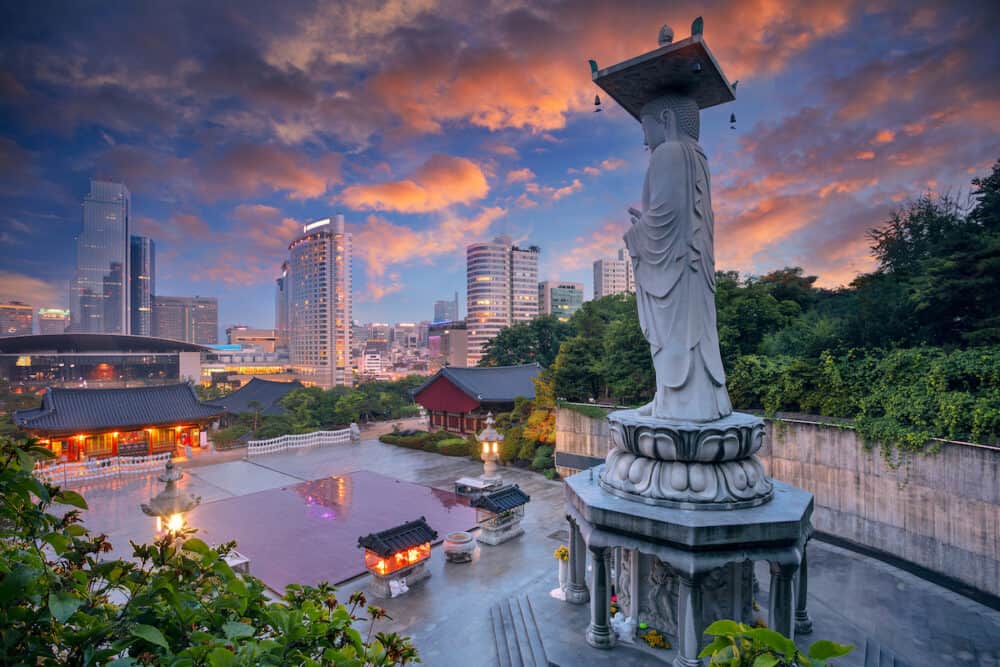
What can you do there?
- Seoul: Explore the vibrant capital city of Seoul, home to historic sites like Gyeongbokgung Palace and Bukchon Hanok Village, as well as modern attractions like Gangnam District and Myeongdong shopping street.
- DMZ: Visit the Korean Demilitarized Zone (DMZ) to glimpse the tensions between North and South Korea. Panmunjom and the Third Tunnel of Aggression are notable spots.
- Cultural Experiences: Engage in traditional tea ceremonies, try on hanbok (traditional Korean clothing), and attend a Nanta performance or a temple stay.
- Jeju Island: Explore the natural wonders of Jeju Island, including lava tubes, waterfalls, and Seongsan Ilchulbong Peak.
- Hiking: South Korea offers excellent hiking opportunities, with trails like the Seoraksan and Jirisan attracting outdoor enthusiasts.
- Cuisine: Savour Korean cuisine, including bibimbap, bulgogi, and kimchi, at local restaurants and street food stalls.
- Gyeongju: Discover the historical treasures of Gyeongju, known as the “Museum Without Walls,” featuring ancient tombs, temples, and historic sites.
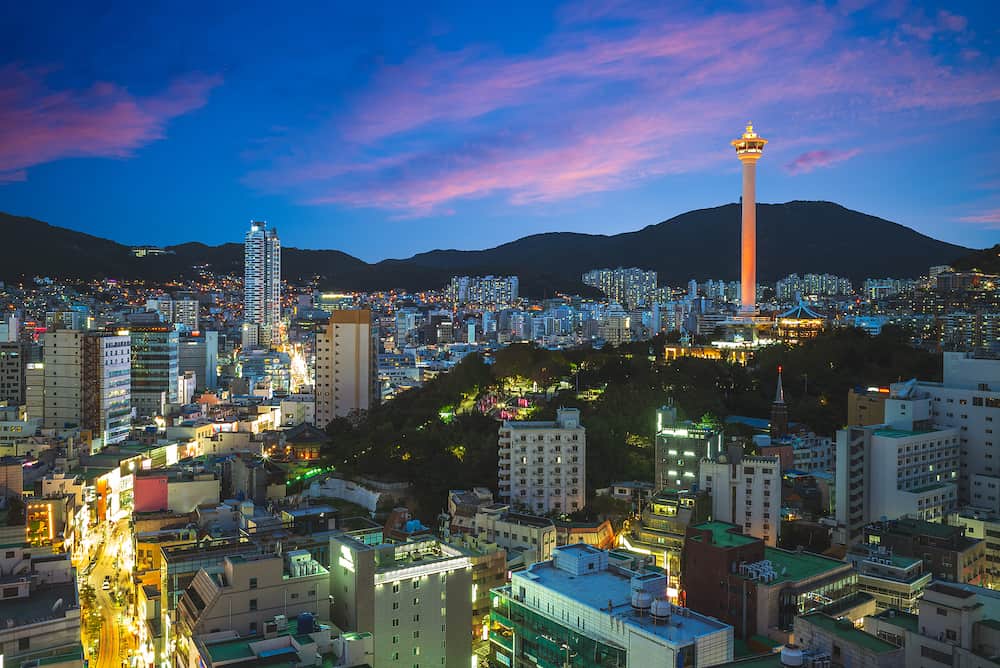
Why is South Korea Safe to Travel:
- Low Crime Rates: South Korea reports relatively low violent crime rates, focusing on public safety and law enforcement.
- Efficient Law Enforcement: South Korea has a well-organised and professional police force that maintains public safety.
- Safe Transportation: The country’s public transportation systems, including buses and subways, are known for their safety, reliability, and cleanliness.
- Cultural Respect: South Korean society strongly emphasises respect, social harmony, and order, creating a peaceful and welcoming environment.
- Efficient Disaster Preparedness: South Korea is prepared for natural disasters with robust infrastructure and disaster management plans.
- Low Drug Use: South Korea has relatively low rates of drug use and drug-related crimes.
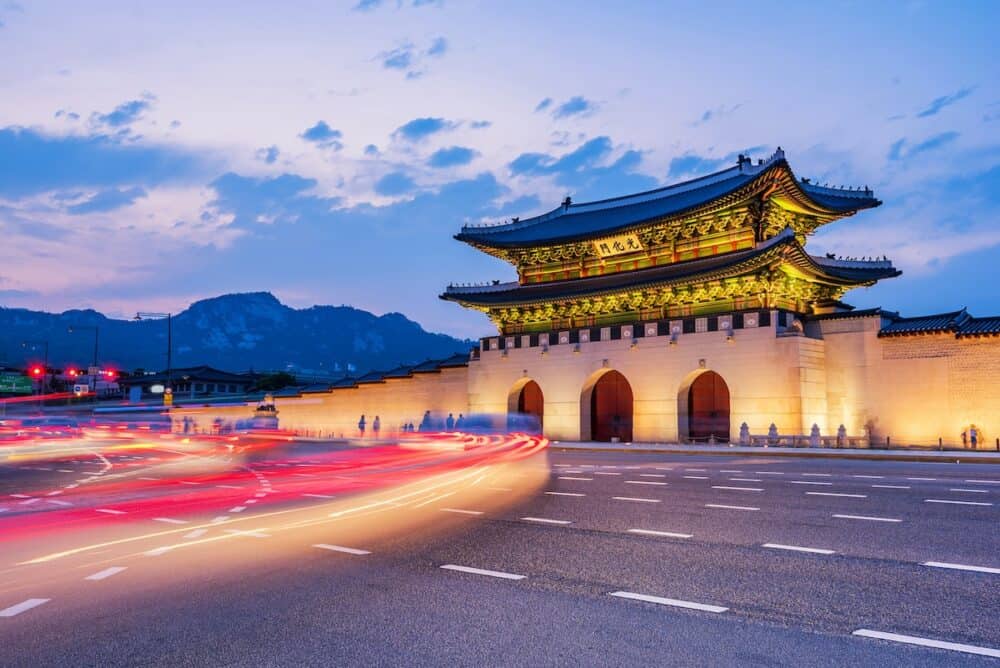
Taiwan
What is Taiwan like?
Taiwan is one of the safest places in Asia to travel to. It is characterised by its stunning scenery, including lush mountains, pristine beaches, and charming countryside.
Indigenous peoples, Chinese immigrants, and Japanese colonial history influence the island’s diverse cultural heritage. Taiwan’s cities are modern and bustling, yet they retain a deep respect for tradition and culture.
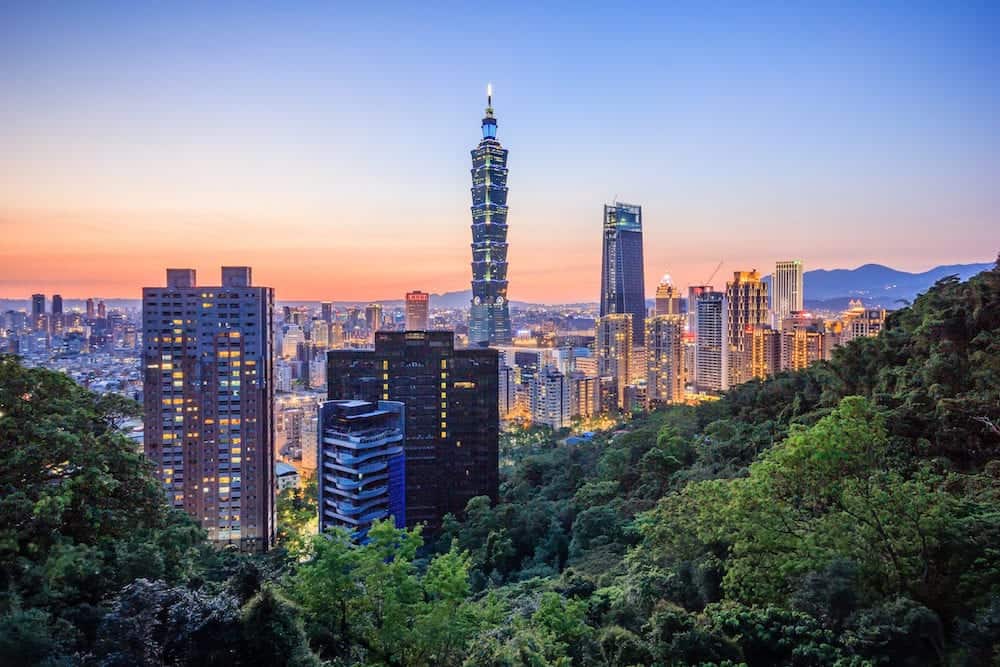
What can you do there?
- Taipei: Explore the capital city, Taipei, known for its vibrant night markets, historic temples like Longshan Temple, and the iconic Taipei 101 skyscraper.
- Taroko Gorge: Visit Taroko Gorge National Park, famous for its marble canyons, hiking trails, and the dramatic Taroko Bridge.
- Alishan: Witness the sunrise at Alishan, a mountainous region featuring ancient forests and breathtaking vistas.
- Sun Moon Lake: Enjoy the tranquillity of Sun Moon Lake, Taiwan’s largest lake, surrounded by lush forests and cycling paths.
- Tainan: Discover Taiwan’s history in Tainan, the island’s oldest city, with well-preserved temples, historic sites, and delicious street food.
- Cultural Festivals: Experience cultural festivals like the Pingxi Sky Lantern Festival and the Yanshui Beehive Rockets Festival.
- Cuisine: Savor Taiwanese cuisine, including street food like stinky tofu, oyster omelettes, and bubble tea.
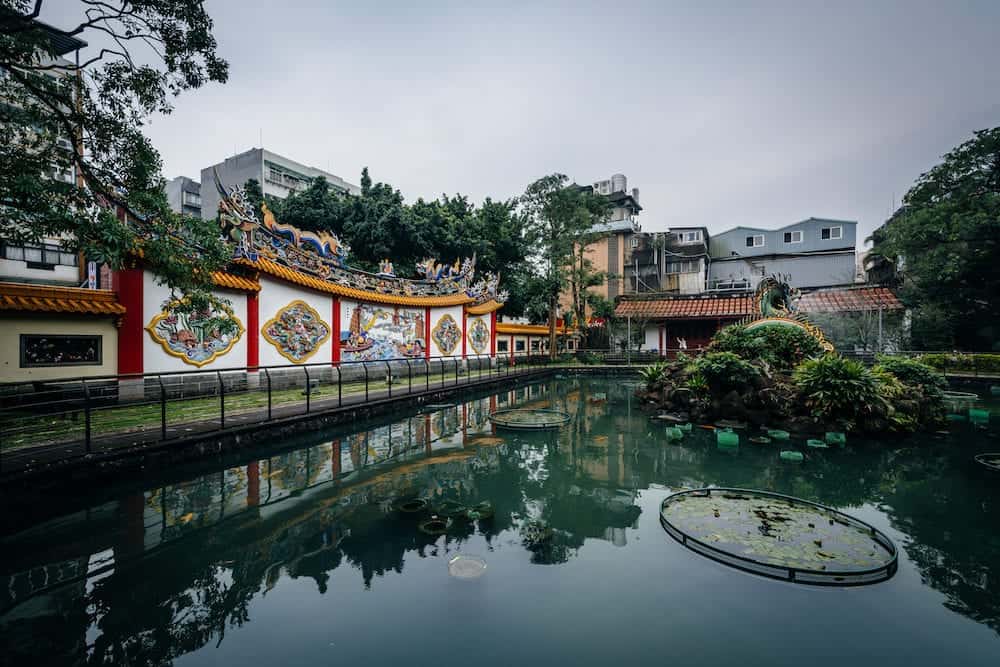
Why is Taiwan Safe to Travel:
- Low Crime Rates: Taiwan consistently reports low violent crime rates, focusing on public safety and law enforcement.
- Efficient Law Enforcement: Taiwan has a professional and well-organised police force dedicated to maintaining public safety.
- Safe Transportation: The country’s public transportation systems, including buses and the High-Speed Rail (HSR), are known for their safety, reliability, and cleanliness.
- Cultural Respect: Taiwanese society values politeness, respect for others, and social harmony, creating a peaceful and welcoming environment.
- Efficient Disaster Preparedness: Taiwan is prepared for natural disasters, such as typhoons and earthquakes, with robust infrastructure and disaster management plans.
- Low Drug Use: Taiwan has relatively low rates of drug use and drug-related crimes.
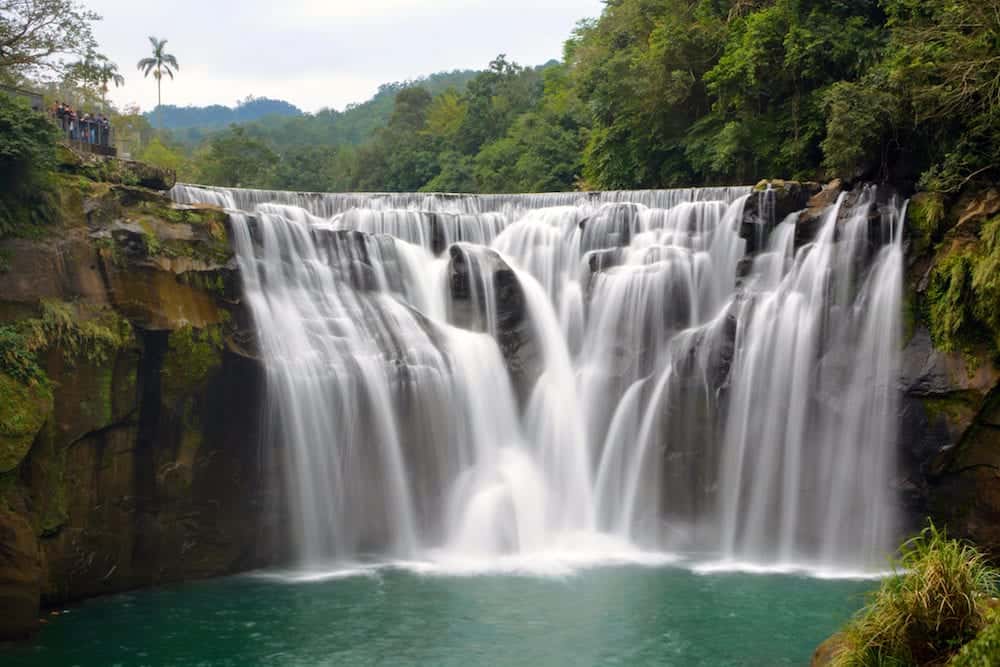
Bhutan
What is Bhutan like?
Bhutan is a land of pristine beauty. It is characterised by its towering mountains, lush valleys, dense forests, and stunning monasteries or dzongs perched on hilltops.
It is a country that values its culture, traditions, and spiritual practices, creating a deep reverence and respect for the environment.
The Bhutanese people are known for their warmth, friendliness, and simplicity. This country, in particular, is one of the safest Asian countries for solo female travellers to visit.
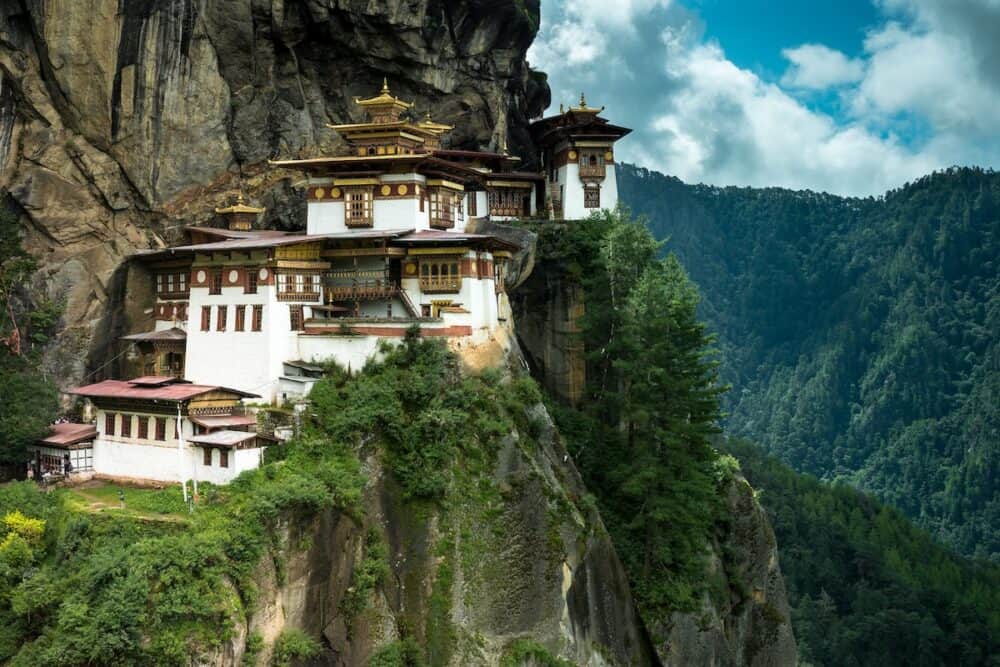
What can you do there?
- Paro Taktsang (Tiger’s Nest) Monastery: Hike to the iconic Tiger’s Nest Monastery, one of Bhutan’s most sacred sites, dramatically perched on a cliff.
- Thimphu: Explore Bhutan’s capital city, Thimphu, with its lively weekend market, impressive Tashichho Dzong, and the National Memorial Chorten.
- Punakha Dzong: Visit the Punakha Dzong, an architectural marvel located at the confluence of two rivers, and enjoy its picturesque surroundings.
- Gangtey Valley: Discover the serene Gangtey Valley, home to the Gangtey Monastery and the rare black-necked cranes in winter.
- Bhutanese Cuisine: Savour Bhutanese dishes like ema datshi (chilli cheese stew) and momo (dumplings) at local restaurants.
- Cultural Festivals: Attend Bhutanese festivals, or tsechus, where you can witness vibrant masked dances and religious ceremonies.
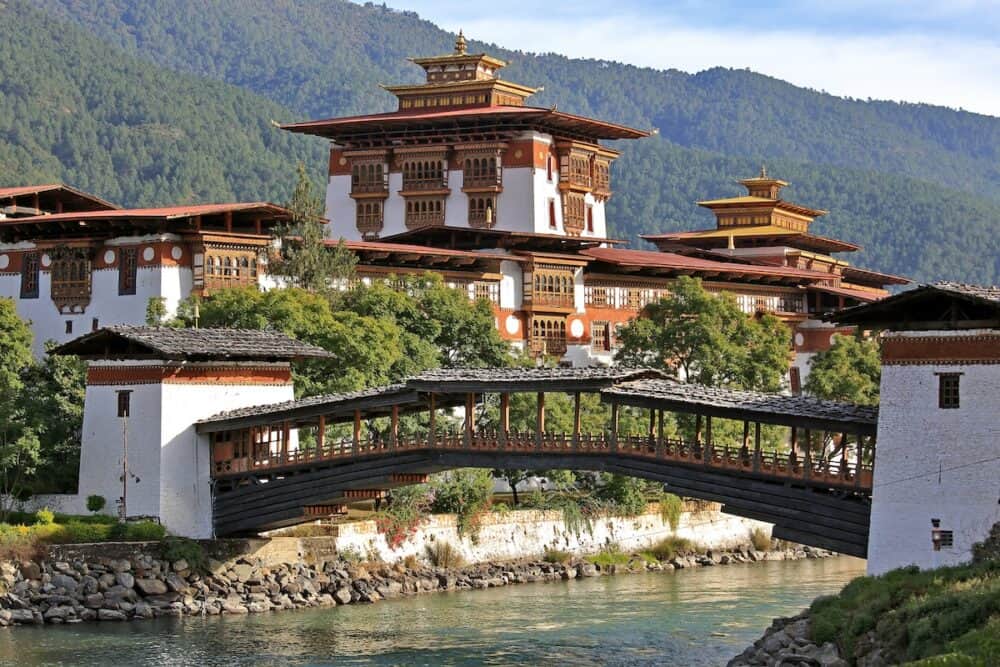
Why is Bhutan Safe to Travel:
- Low Crime Rates: Bhutan consistently reports low violent crime rates, focusing on public safety and law enforcement.
- Efficient Law Enforcement: Bhutan has a dedicated police force that works diligently to maintain public safety and assist travellers.
- Isolation: Bhutan’s remote location in the Himalayas and regulated tourism industry provide a sense of safety and tranquillity.
- Cultural Respect: Bhutanese culture strongly emphasises respect for others, nature, and spirituality, creating a peaceful and harmonious atmosphere.
- Environmentally Conscious: Bhutan is committed to environmental conservation, which includes maintaining the pristine beauty of its landscapes and minimising pollution.
- Community Policing: Bhutanese communities have close-knit relationships, fostering cooperation and safety.
- GNH Philosophy: The Bhutanese government’s pursuit of Gross National Happiness encourages a holistic approach to well-being and happiness, contributing to a safe and contented society.
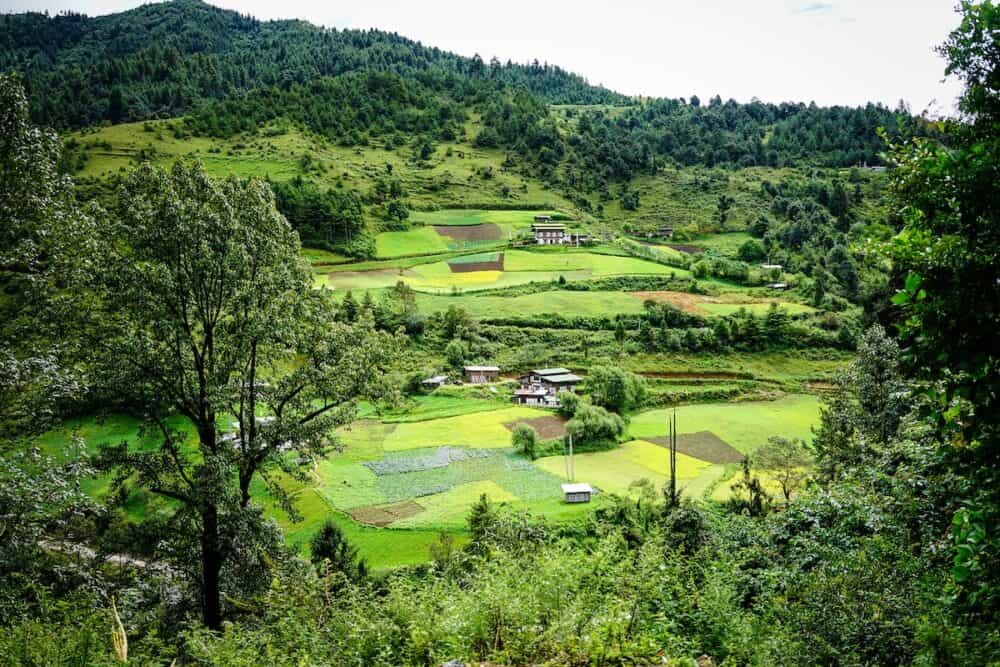
Malaysia
What is Malaysia like?
Malaysia is located in Southeast Asia, and its cultural diversity is one of its defining features. Malays, Chinese, Indians, and indigenous groups coexist harmoniously, enriching the country’s traditions and customs.
This cultural tapestry is reflected in Malaysia’s architecture, festivals, and cuisine. The nation is characterised by its modern cities, such as Kuala Lumpur, and its serene countryside, including lush rainforests and pristine beaches.
It is a popular tourist destination and is categorised as one of the safest countries in Southeast Asia.
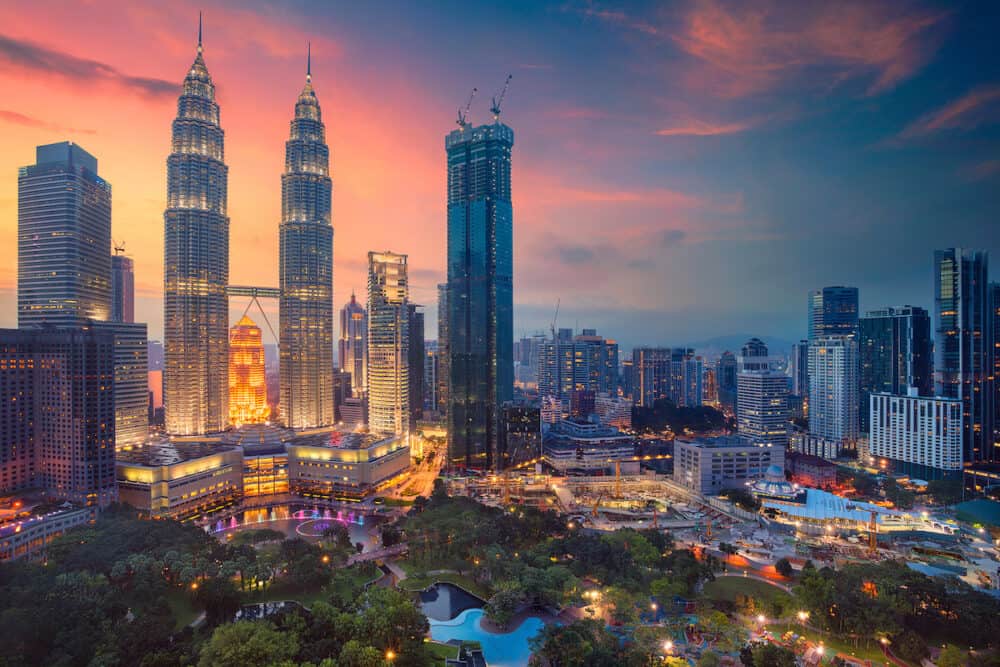
What can you do there?
- Kuala Lumpur: Explore the capital city, Kuala Lumpur, known for iconic landmarks like the Petronas Twin Towers, Batu Caves, and Merdeka Square.
- Penang: Discover the historic streets of George Town, a UNESCO World Heritage Site, and savour Penang’s delectable street food.
- Langkawi: Relax on the beautiful Langkawi Island, known for its beaches, rainforests, and the Langkawi Sky Bridge.
- Cultural Heritage: Visit Melaka (Malacca) to explore its historical sites, or immerse yourself in the vibrant culture of Little India in Brickfields, Kuala Lumpur.
- Rainforest Adventures: Experience the biodiversity of Malaysian rainforests through activities like jungle trekking and wildlife spotting in national parks.
- Culinary Delights: Enjoy Malaysia’s diverse cuisine, including nasi lemak, laksa, and satay.
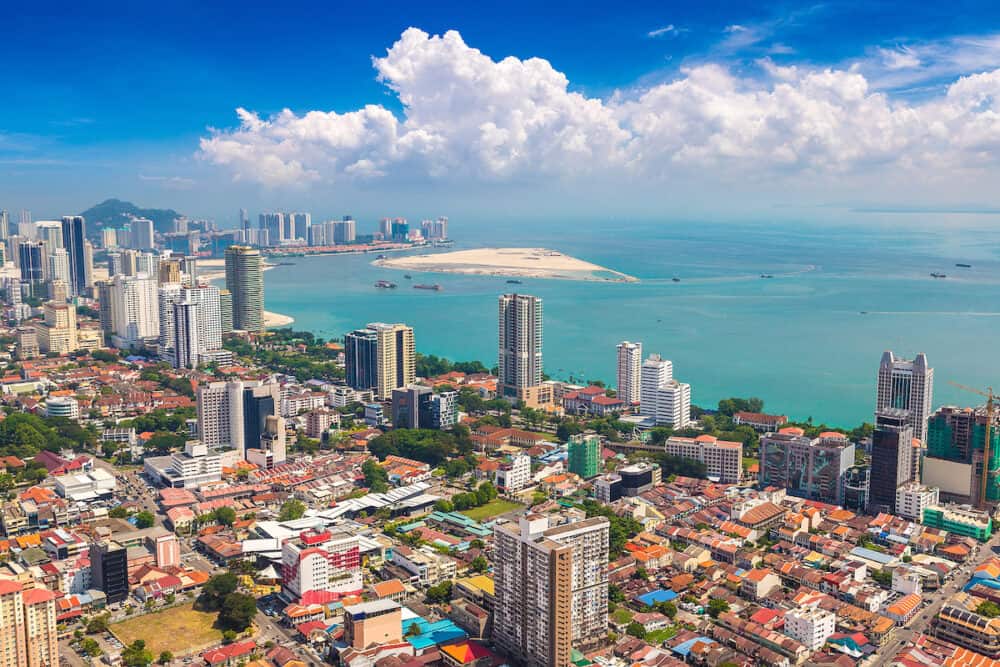
Why is Malaysia Safe to Travel:
- Low Crime Rates: Malaysia reports relatively low violent crime rates, focusing on public safety and law enforcement.
- Efficient Law Enforcement: Malaysia has an organised police force dedicated to maintaining public safety and assisting travellers.
- Cultural Respect: Malaysian society values politeness, respect for others, and social harmony, creating a peaceful and welcoming environment.
- Ethnic Diversity: Malaysia’s multicultural society promotes tolerance and acceptance among its diverse communities.
- Tourism-Friendly Policies: Malaysia values its tourism industry and strives to provide travellers a safe and enjoyable environment.
- Efficient Transportation: The country’s transportation systems, including buses and the Mass Rapid Transit (MRT), are known for their safety, reliability, and cleanliness.
- Natural Disaster Preparedness: Malaysia is prepared for natural disasters, with disaster management plans in place.
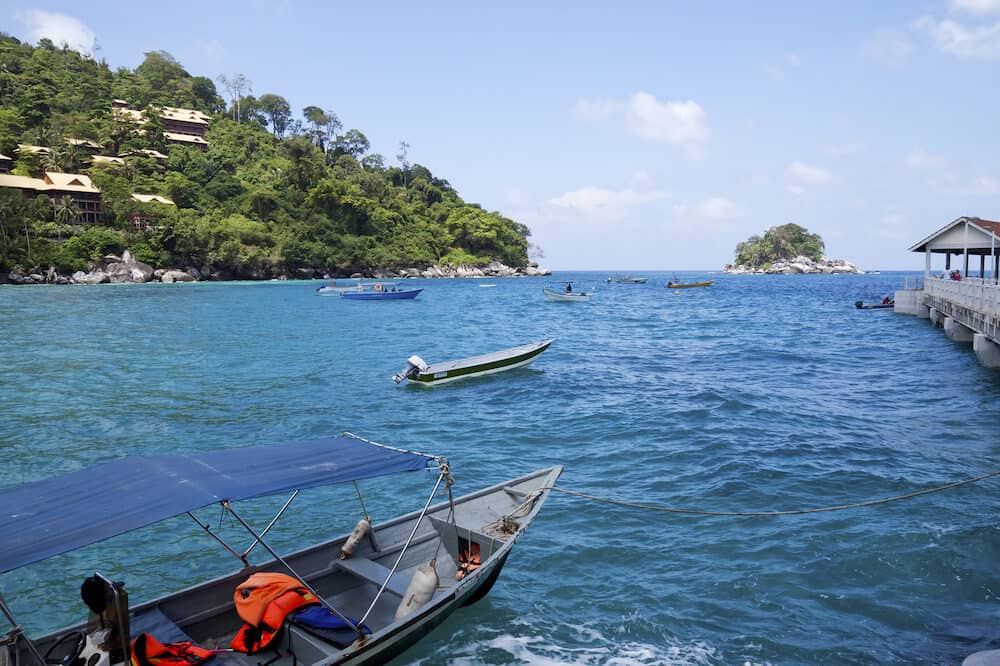
United Arab Emirates (UAE)
What is the United Arab Emirates like?
The UAE is distinguished by its iconic skyline and futuristic skyscrapers, including the Burj Khalifa, the world’s tallest building.
While cities such as Dubai and Abu Dhabi exude modernity, the country also treasures Bedouin heritage and Islamic culture. The UAE is known for its hospitality and a thriving expatriate community worldwide.
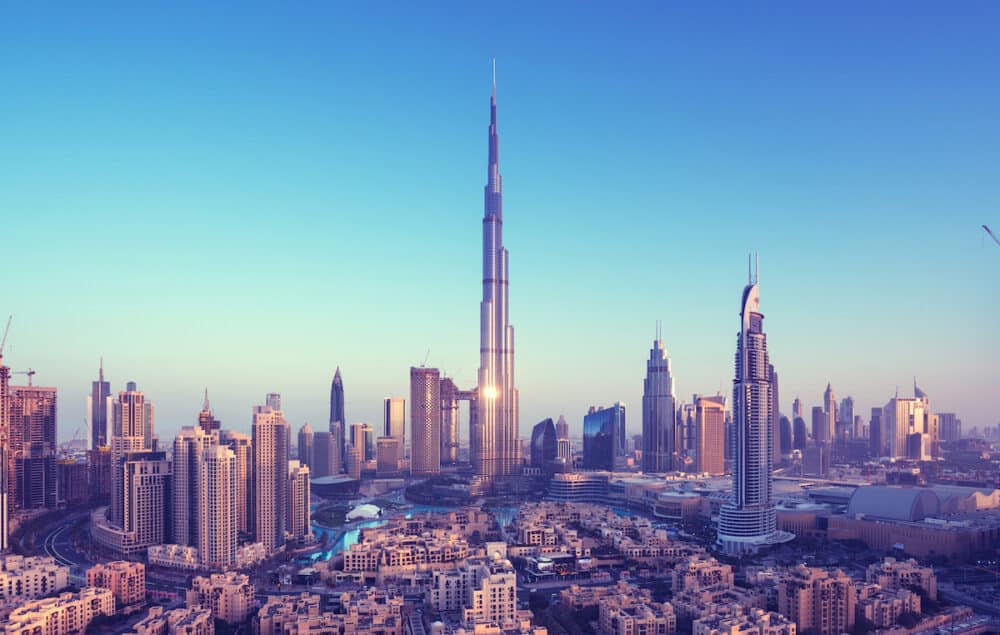
What can you do there?
- Dubai: Explore Dubai, renowned for its luxury shopping, impressive malls like the Mall of the Emirates, and extravagant experiences, including indoor skiing at Ski Dubai.
- Abu Dhabi: Visit the UAE’s capital, Abu Dhabi, home to architectural marvels like the Sheikh Zayed Grand Mosque and the Louvre Abu Dhabi Museum.
- Desert Adventures: Embark on desert safaris, dune bashing, and camel rides in the vast sand dunes of the UAE.
- Cultural Experiences: Discover Emirati culture by visiting heritage villages, exploring traditional souks (markets), and enjoying Arabic cuisine.
- Luxury Resorts: Experience world-class hospitality at luxury resorts like Atlantis, The Palm, and the Burj Al Arab in Dubai.
- Beach Retreats: Relax on pristine beaches, particularly along the coastline of Fujairah and Ras Al Khaimah.
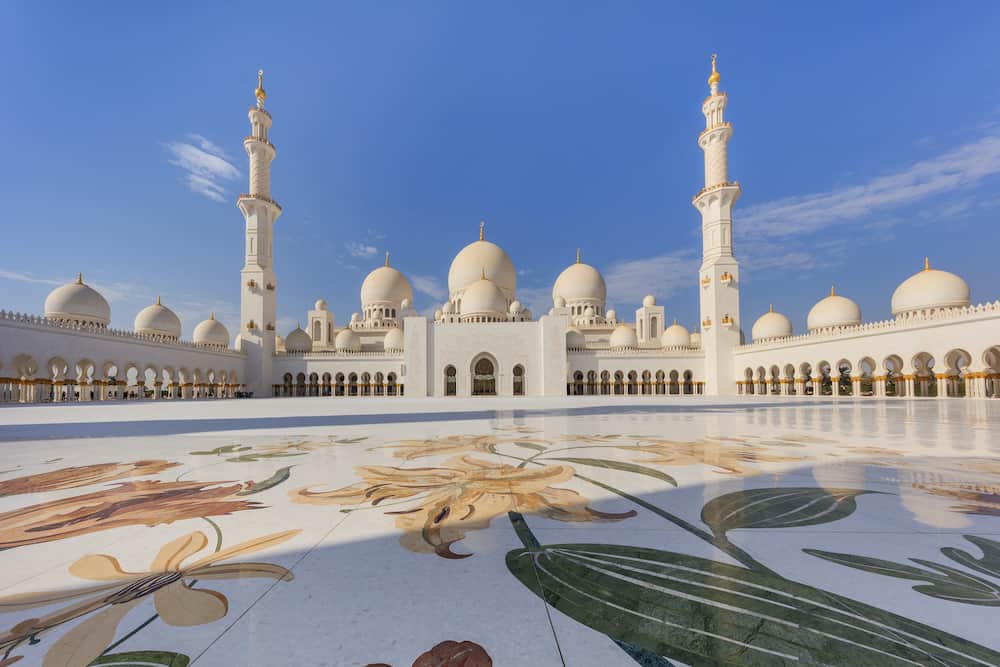
Why is the United Arab Emirates Safe to Travel:
- Low Crime Rates: The UAE consistently reports low violent crime rates, focusing on public safety and law enforcement.
- Efficient Law Enforcement: The country has a professional and well-organised police force that maintains public safety.
- Strict Laws: The UAE enforces strict laws and regulations, creating a safe and orderly environment.
- Safe Transportation: The UAE’s public transportation systems, including modern metro systems and well-maintained roads, are known for their safety and efficiency.
- Cultural Respect: Emirati society values respect for others and cultural diversity, creating a harmonious and welcoming atmosphere.
- Efficient Disaster Preparedness: The UAE is well-prepared for natural disasters, with robust infrastructure and disaster management plans.
- Tourism-Friendly Policies: The UAE prioritises tourism and strives to provide travellers with a secure and enjoyable environment.
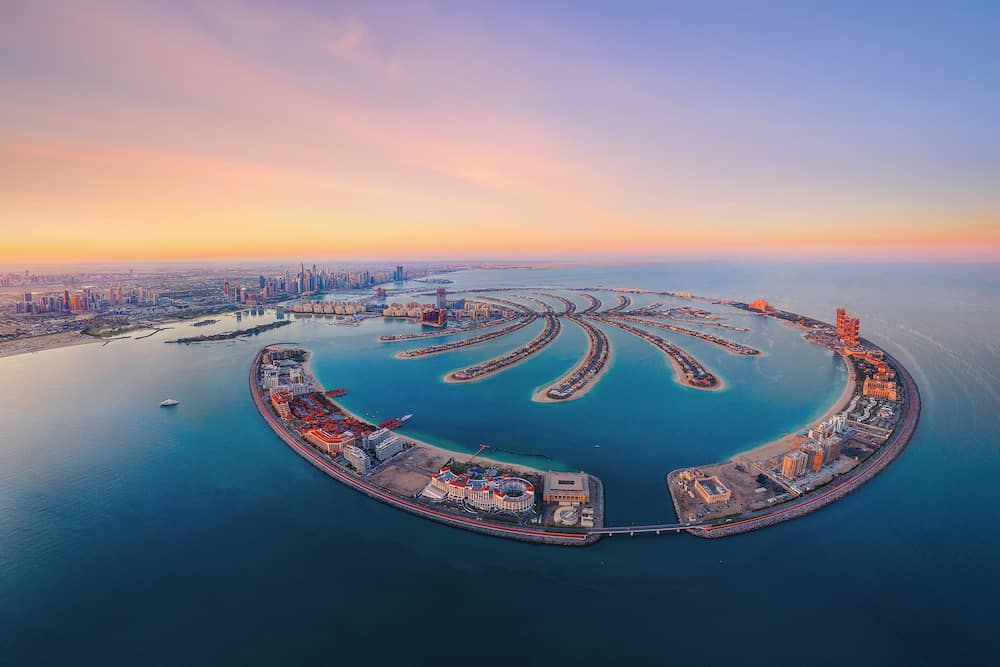
Qatar
What is Qatar like?
Qatar is known as one of the safe places to travel in Asia and is characterized by its stunning skyline, featuring architectural wonders like the futuristic skyscrapers of West Bay in Doha. The country celebrates its rich Bedouin heritage while embracing a cosmopolitan outlook.
Qataris are known for their warm hospitality, and the country’s rapid development has created a thriving expatriate community from around the world.
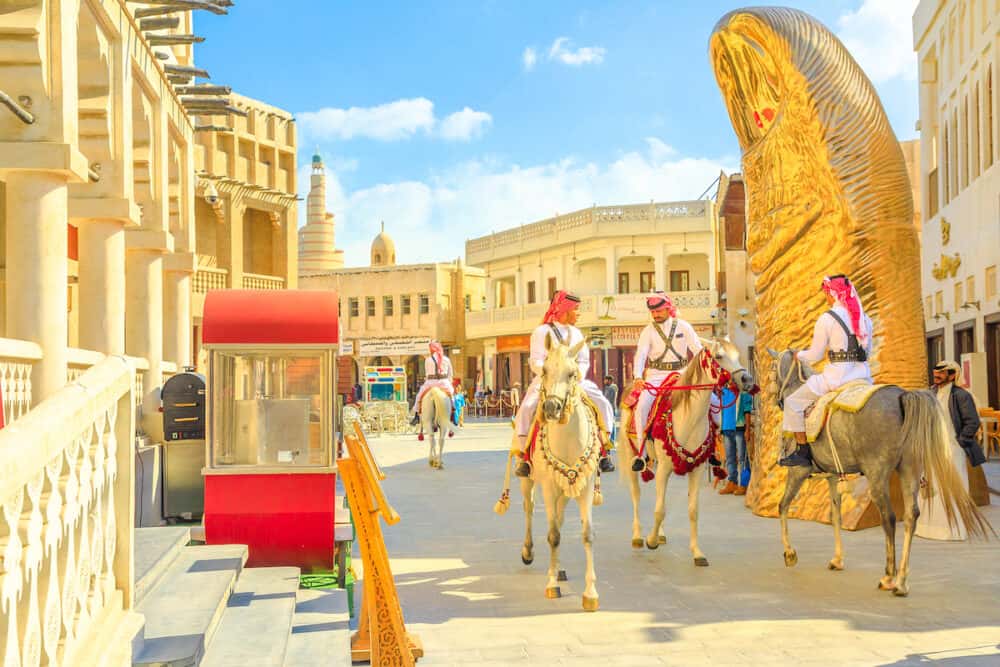
What can you do there?
- Doha: Explore the capital city, Doha, with its modern landmarks like the Museum of Islamic Art and the Pearl-Qatar, an artificial island known for luxury shopping and dining.
- Souq Waqif: Stroll through the historic Souq Waqif, a vibrant market where you can shop for traditional goods, dine at local restaurants, and soak in the atmosphere.
- Desert Adventures: Venture into the Qatari desert for thrilling experiences like dune bashing, camel rides, and desert safaris.
- Cultural Experiences: Discover Qatari culture at the Katara Cultural Village, where you can attend performances, visit galleries, and explore traditional architecture.
- Museum of Qatar: Visit the National Museum of Qatar, a stunning architectural masterpiece that tells the story of Qatar’s history and culture.
- Waterfront Activities: Enjoy water sports and activities along the picturesque Corniche, including kayaking, paddle boarding, and jet skiing.
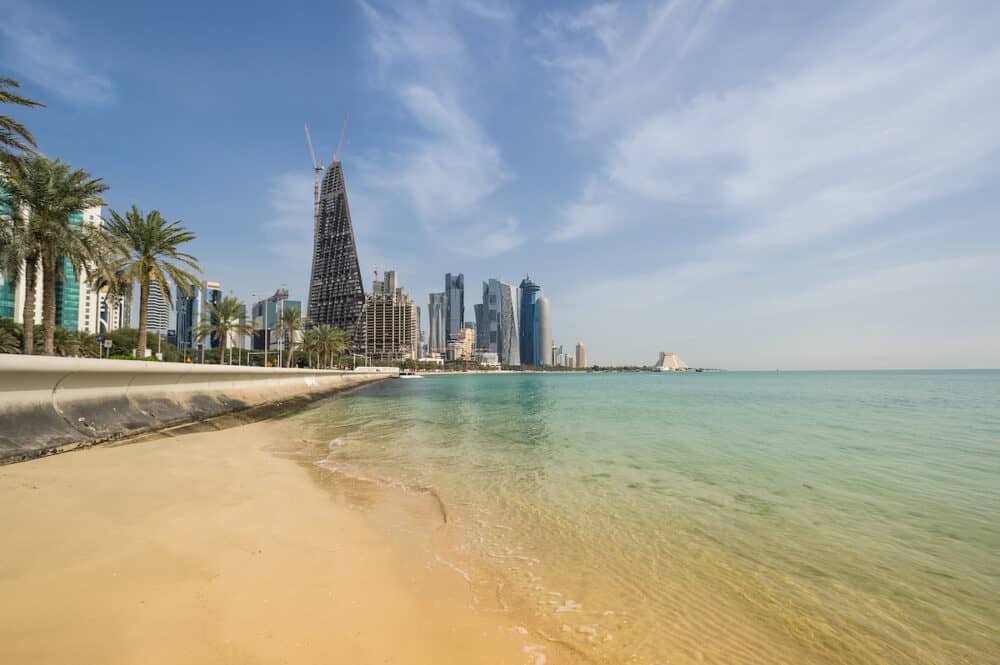
Why is Qatar Safe to Travel:
- Low Crime Rates: Qatar consistently reports low violent crime rates, focusing on public safety and law enforcement.
- Efficient Law Enforcement: The country has a professional and well-organised police force that maintains public safety.
- Strict Laws: Qatar enforces strict laws and regulations, creating a safe and orderly environment.
- Cultural Respect: Qatari society values respect for others and cultural diversity, creating a harmonious and welcoming atmosphere.
- Efficient Disaster Preparedness:Qatar is prepared for natural disasters with robust infrastructure and disaster management plans.
- Tourism-Friendly Policies:Qatar prioritises tourism and strives to provide travellers with a secure and enjoyable environment.
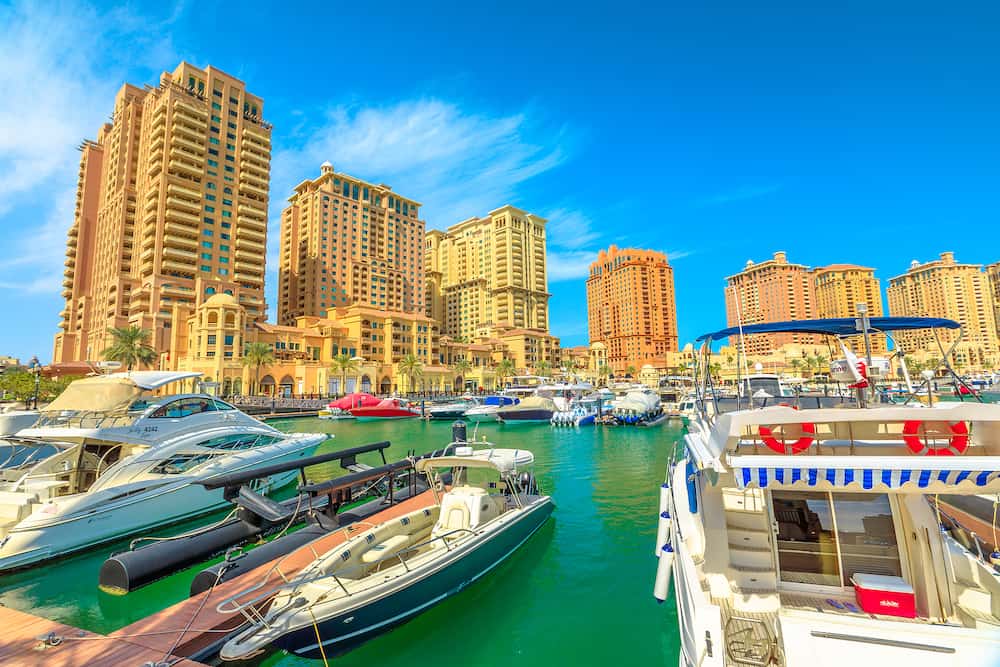
Oman
What is Oman like?
Oman is characterised by its diverse geography, encompassing towering mountains, pristine deserts, picturesque coastlines, and historic forts.
The country strongly emphasises preserving its cultural traditions and heritage, creating a sense of authenticity and tranquillity. Omanis are known for their genuine hospitality and respect for visitors.
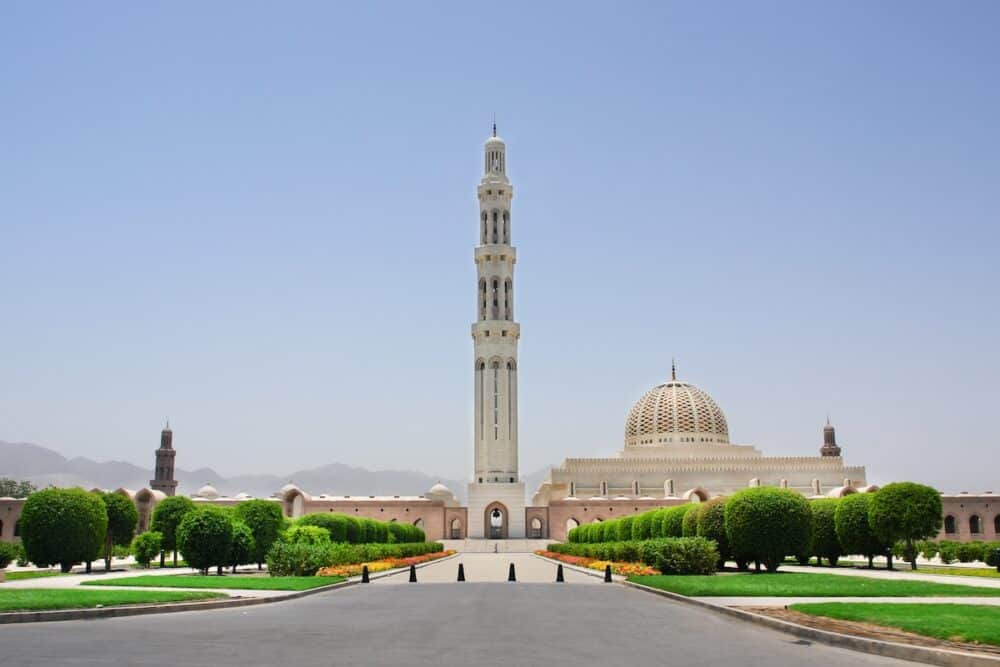
What can you do there?
- Muscat: Explore the capital city, Muscat, known for its stunning architecture, including the Sultan Qaboo Grand Mosque and the Royal Opera House.
- Jebel Akhdar: Hike in the Al Hajar Mountains, particularly in Jebel Akhdar, where you’ll find terraced villages, lush gardens, and breathtaking vistas.
- Wahiba Sands: Experience the Wahiba Sands desert, known for its towering dunes and traditional Bedouin experiences.
- Historic Forts: Visit Oman’s historic forts and castles, such as Nizwa Fort and Bahla Fort, which provide insights into the country’s rich history.
- Omani Souks: Shop for souvenirs and traditional goods at Omani souks, where you can find frankincense, textiles, and exquisite silverware.
- Desert Camping: Enjoy a night of desert camping under the starry Omani sky for a unique experience.
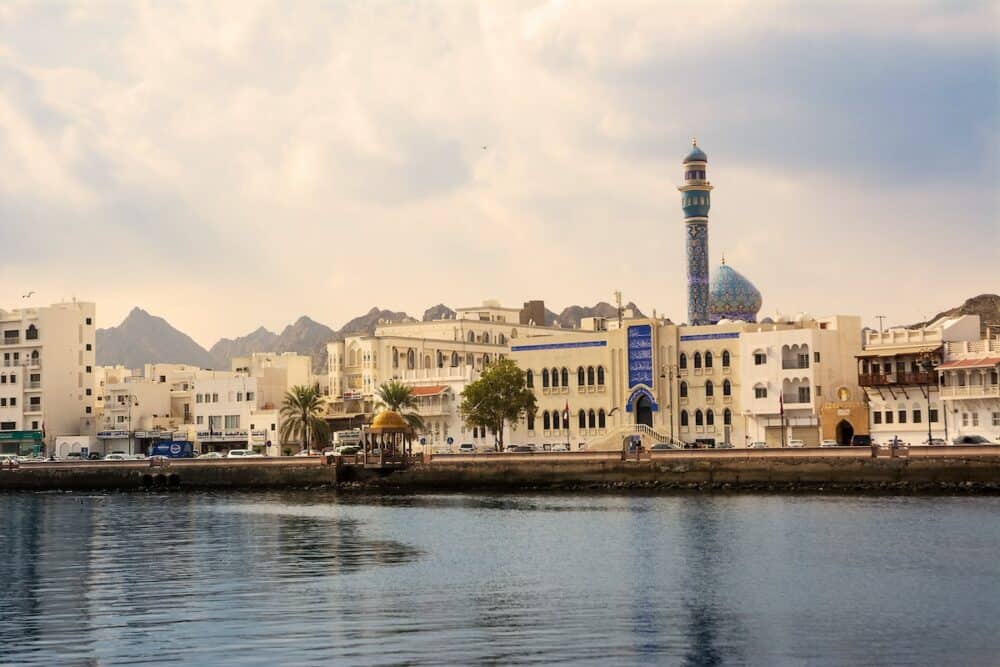
Why is Oman Safe to Travel:
- Low Crime Rates: Oman consistently reports low violent crime rates, focusing on public safety and law enforcement.
- Efficient Law Enforcement: Oman has a well-organised and professional police force dedicated to maintaining public safety.
- Cultural Respect: Omani society values respect for others, traditional values, and hospitality, creating a peaceful and welcoming atmosphere.
- Efficient Disaster Preparedness: Oman is prepared for natural disasters with robust infrastructure and disaster management plans.
- Tourism-Friendly Policies: Oman prioritises tourism and strives to provide travellers with a secure and enjoyable environment.
- Community Policing:
Close-knit Omani communities foster cooperation and safety, making it an inviting destination.
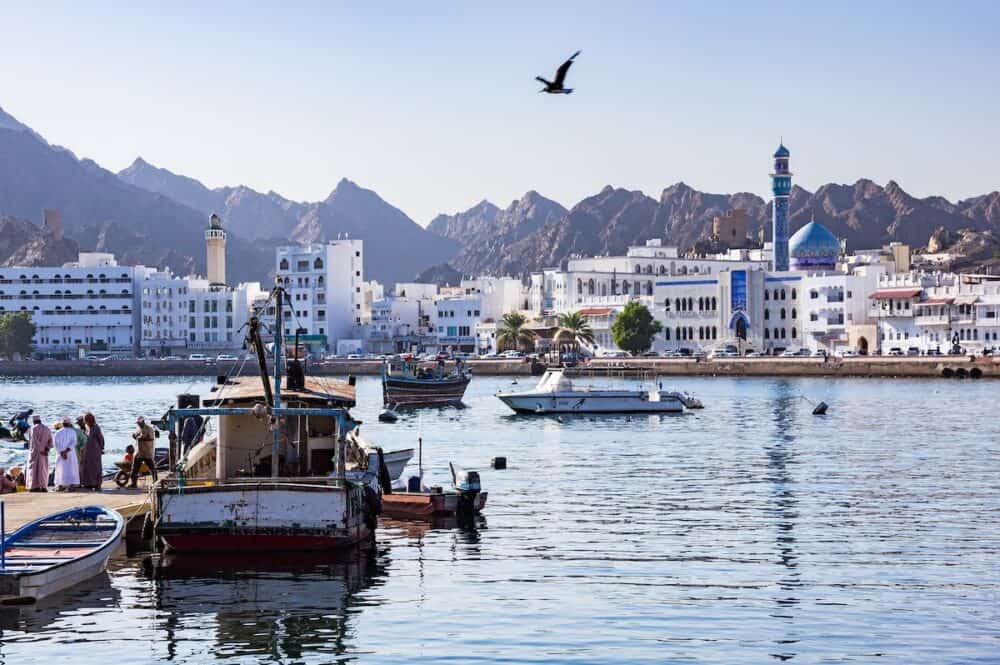
Vietnam
What is Vietnam like?
Vietnam is one of the safest places in Asia to travel alone. It is a country of contrasts, with bustling cities like Hanoi and Ho Chi Minh City, serene rural landscapes, and pristine coastlines.
Its history is deeply ingrained in its culture, and remnants of its past can be seen in its ancient temples, colonial architecture, and war museums. The Vietnamese people are known for their friendliness and resilience.
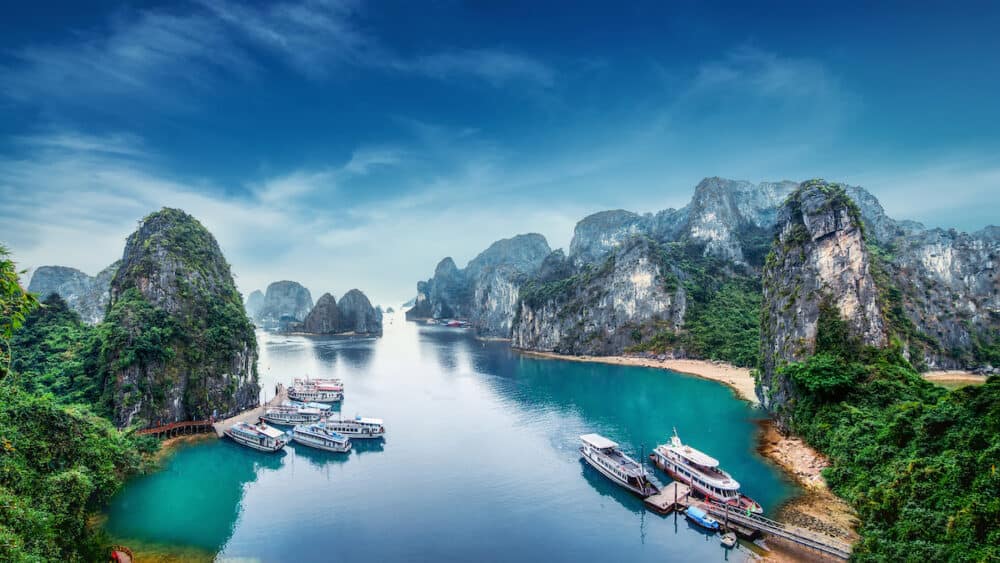
What can you do there?
- Halong Bay: Cruise through the iconic Halong Bay, where thousands of limestone karsts and emerald waters create a breathtaking seascape.
- Hanoi: Explore the capital city, Hanoi, with its historic Old Quarter, Hoan Kiem Lake, and cultural landmarks like the Temple of Literature.
- Hue: Discover the ancient imperial city of Hue, home to historic palaces, temples, and the iconic Perfume River.
- Hoi An: Stroll through the charming streets of Hoi An, known for its lantern-lit evenings, tailor shops, and delicious street food.
- Saigon (Ho Chi Minh City): Experience the bustling energy of Saigon, visit the Cu Chi Tunnels, and explore the War Remnants Museum.
- Mekong Delta: Cruise the Mekong Delta’s waterways, visit floating markets, and immerse yourself in rural life.
- Phong Nha-Ke Bang National Park: Discover the stunning caves and karst landscapes of Phong Nha-Ke Bang, including Son Doong, the world’s largest cave.
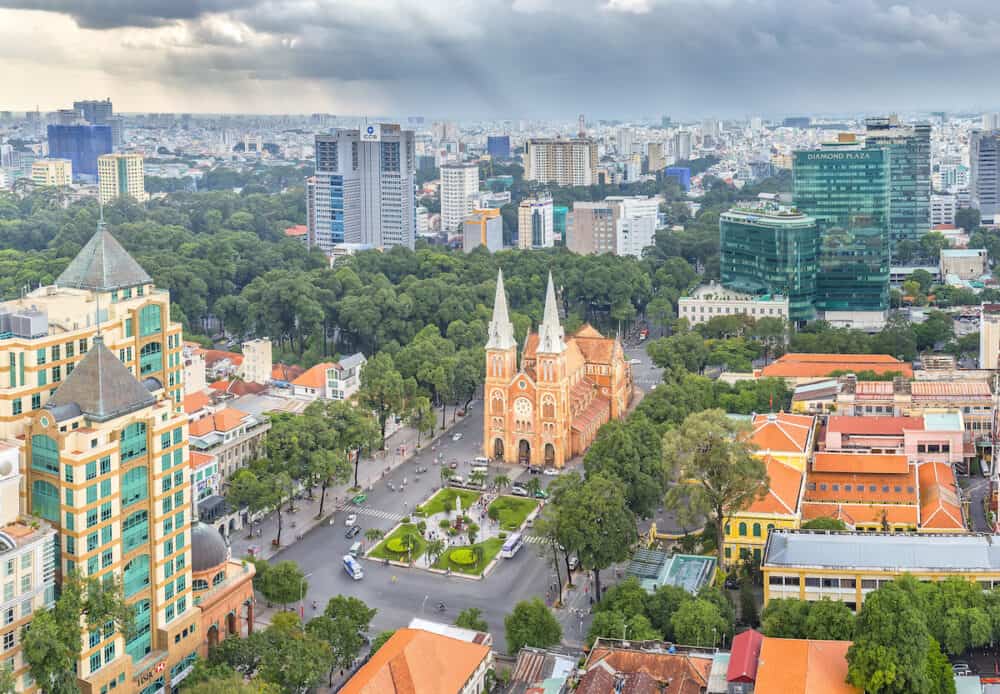
Why is Vietnam Safe to Travel:
- Low Crime Rates: Vietnam reports relatively low violent crime rates, strongly focusing on public safety and law enforcement.
- Efficient Law Enforcement: The country has an organised police force dedicated to maintaining public safety.
- Safe Transportation: Vietnam’s public transportation systems, including buses and trains, are known for their safety and efficiency.
- Cultural Respect: Vietnamese society values politeness, respect for others, and social harmony, creating a peaceful and welcoming atmosphere.
- Efficient Disaster Preparedness: Vietnam is prepared for natural disasters like typhoons and flooding, with disaster management plans in place.
- Community Safety: Close-knit communities promote cooperation and safety, making it a safe destination for travellers.
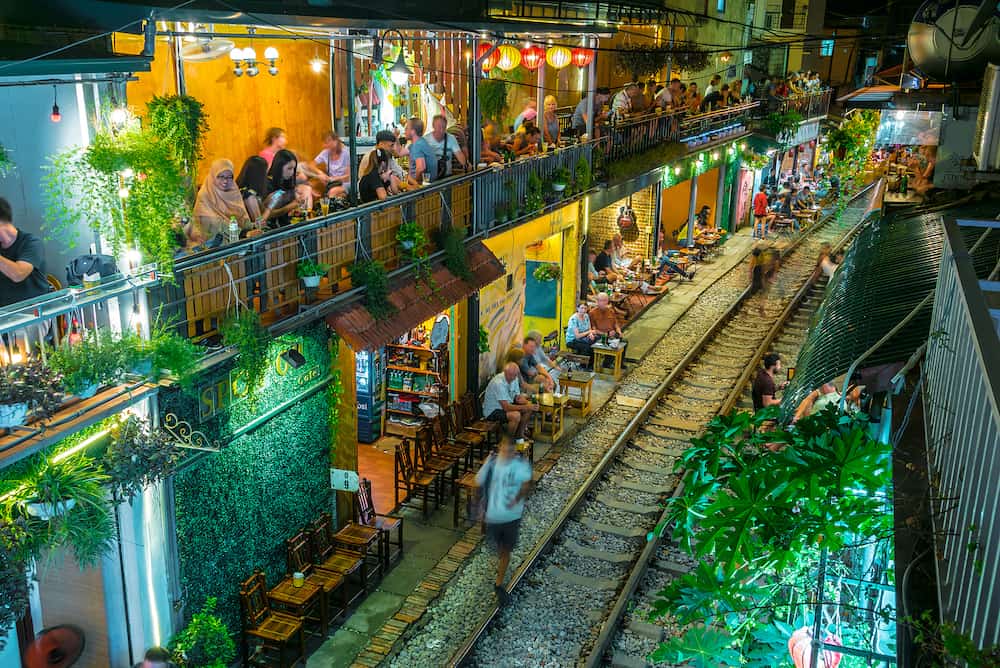
Thailand
What is Thailand like?
Thailand is a magical blend of tradition and modernity. It’s a country where ancient temples stand alongside contemporary skyscrapers, and traditional customs coexist with a lively street food culture.
The Thai people are known for their friendliness, graciousness, and the ubiquitous Thai smile.
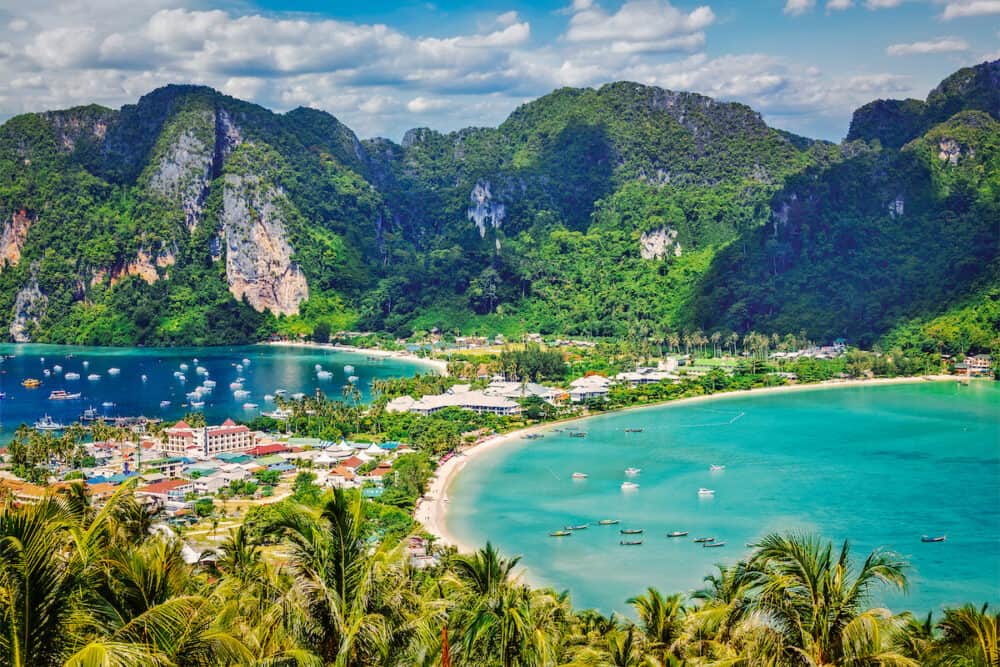
What can you do there?
- Bangkok: Explore Bangkok’s capital city, home to iconic sites like the Grand Palace, Wat Pho, and vibrant markets like Chatuchak.
- Chiang Mai: Discover northern Thailand’s cultural and historical heart in Chiang Mai, where you can visit temples, explore night markets, and partake in traditional ceremonies.
- Phuket and Islands: Relax on the pristine beaches of Phuket, Krabi, or the Phi Phi Islands, and enjoy water activities like snorkelling and diving.
- Ayutthaya: Visit the ancient city of Ayutthaya, a UNESCO World Heritage Site, to explore the historic ruins and temples.
- Chiang Rai: Explore the unique White Temple (Wat Rong Khun) and the Golden Triangle region, known for its opium history.
- Food Adventures: Savor Thailand’s diverse and delectable cuisine, from street favourites like pad Thai and green curry to regional specialties like khao soi.
- Cultural Festivals: Participate in Thai festivals like Songkran (Thai New Year) and Loy Krathong, known for vibrant celebrations and lantern releases.
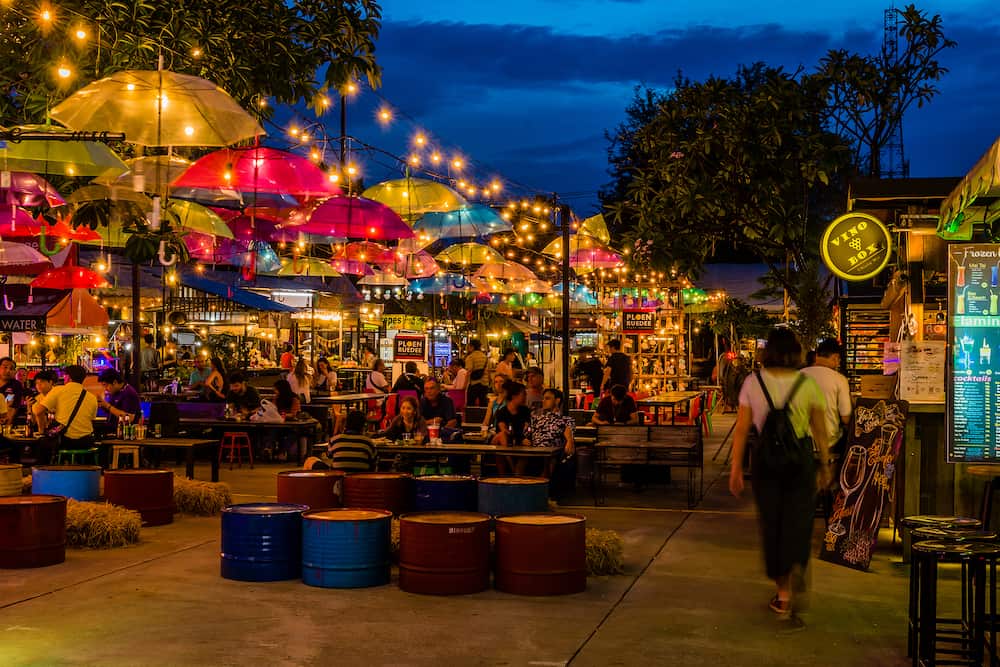
Why is Thailand Safe to Travel:
- Low Crime Rates: Thailand reports relatively low violent crime rates, strongly focusing on public safety and law enforcement.
- Efficient Law Enforcement: The country has an organised and professional police force dedicated to maintaining public safety.
- Safe Transportation: Thailand’s transportation systems, including buses, trains, and tuk-tuks, are known for their safety and accessibility.
- Cultural Respect: Thai society values politeness, respect for others, and social harmony, creating a peaceful and welcoming atmosphere.
- Efficient Disaster Preparedness: Thailand is prepared for natural disasters like tropical storms with robust infrastructure and disaster management plans.
- Tourism-Friendly Policies: Thailand values its tourism industry and strives to provide travellers with a secure and enjoyable environment.
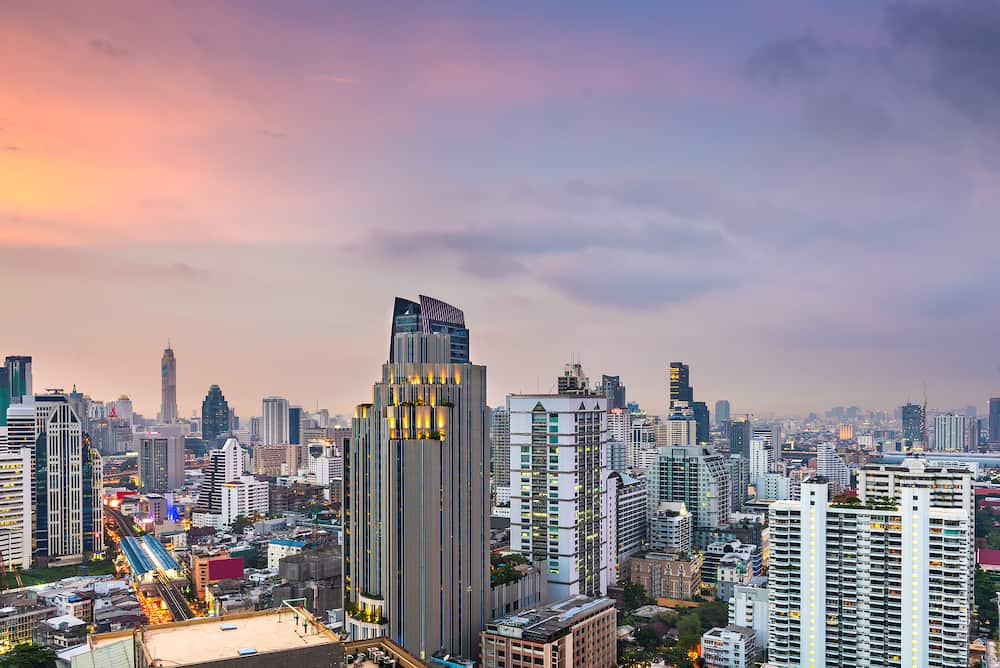
Sri Lanka
What is Sri Lanka like?
Sri Lanka is the best Asian country to visit with kids thanks to its family-friendly accommodation, clean resources and various activities. This country has breathtaking natural beauty, which includes pristine beaches, lush forests, rolling tea plantations, and iconic cultural sites.
The country’s cultural tapestry is woven from a blend of Sinhalese, Tamil, Muslim, and other communities, creating a harmonious and diverse society. Sri Lankans are known for their warmth and friendliness.
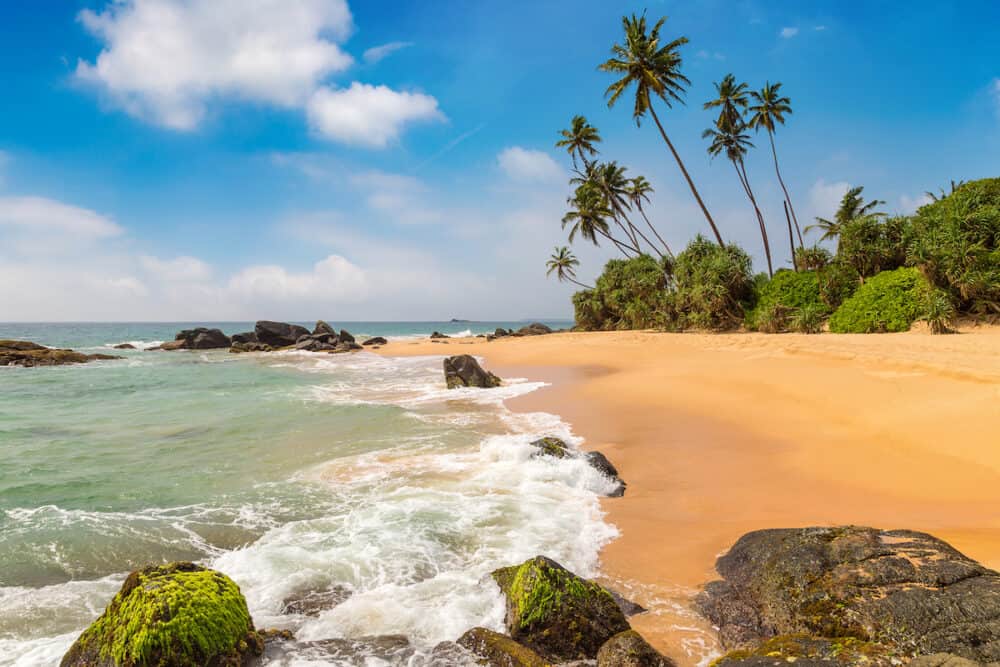
What can you do there?
- Colombo: Explore the vibrant capital city, Colombo, with its colonial-era architecture, bustling markets, and the serene Gangaramaya Temple.
- Kandy: Visit the cultural heart of Sri Lanka in Kandy, home to the Temple of the Tooth Relic and the lush Peradeniya Botanical Gardens.
- Sigiriya: Climb the ancient rock fortress of Sigiriya, a UNESCO World Heritage Site, and admire the stunning frescoes and panoramic views.
- Ella: Trek through the picturesque landscapes of Ella, known for its lush green hills, waterfalls, and the famous Nine Arch Bridge.
- Galle: Wander through the historic city of Galle, known for its well-preserved Dutch fort and charming streets.
- Wildlife Safaris: Embark on wildlife safaris in national parks like Yala or Wilpattu to spot elephants, leopards, and various bird species.
- Tea Plantations: Explore the scenic tea plantations of Nuwara Eliya and enjoy a cup of world-famous Ceylon tea.
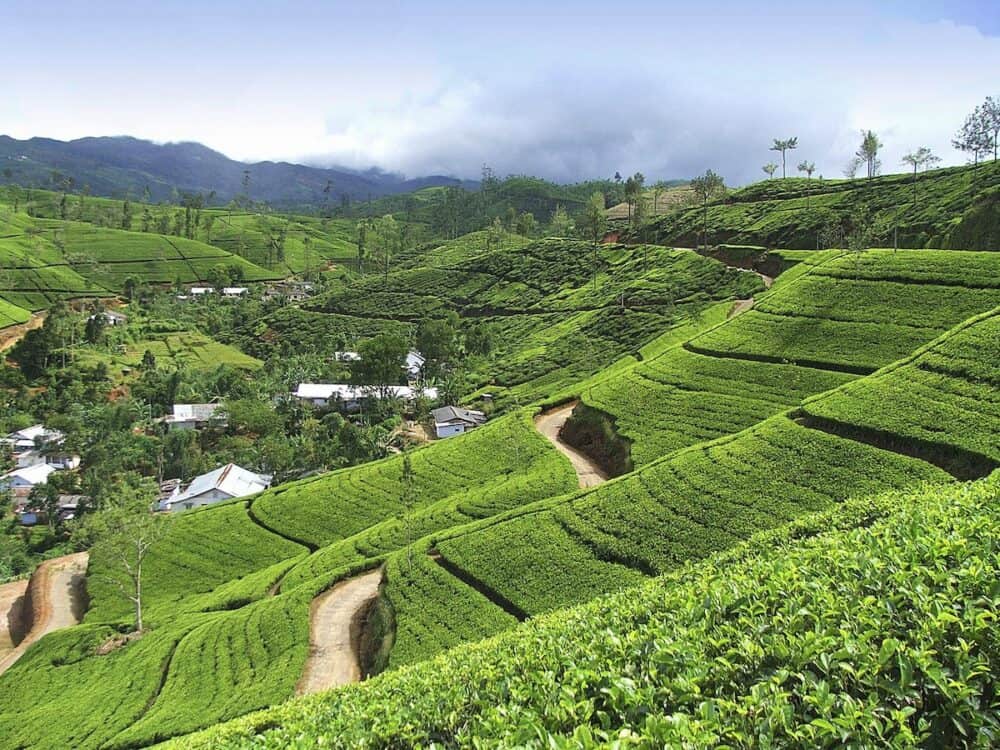
Why is Sri Lanka Safe to Travel:
- Low Crime Rates: Sri Lanka reports relatively low rates of violent crime, with a focus on public safety and law enforcement.
- Efficient Law Enforcement: The country has an organised and professional police force dedicated to maintaining public safety.
- Cultural Respect: Sri Lankan society values politeness, respect for others, and social harmony, creating a peaceful and welcoming atmosphere.
- Efficient Disaster Preparedness: Sri Lanka is prepared for natural disasters with robust infrastructure and disaster management plans.
- Tourism-Friendly Policies: Sri Lanka strongly emphasises tourism and strives to provide a secure and enjoyable environment for travellers.
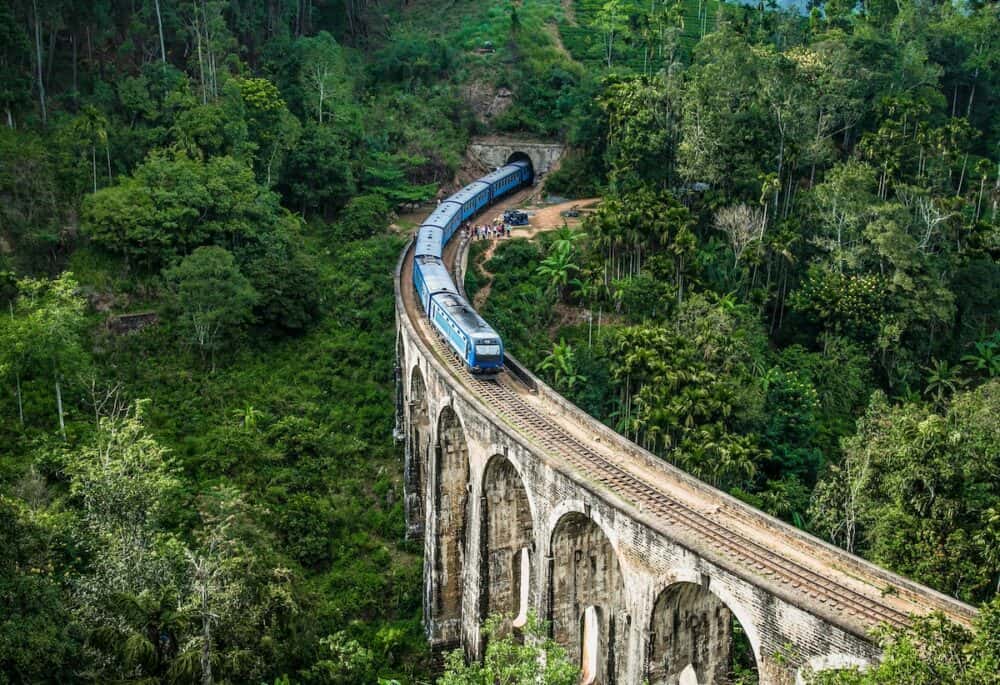
Final Thoughts: Asian Safest Country To Visit
Again, when it comes to choosing the safest cities and countries in Asia to travel to, it is entirely up to your preferences and what characterises it as a safe place for you. What many may find precautionary may be very different to you.
When it comes to choosing a destination that may not be on this list, be sure to:
- Research the country’s safety records.
- Check for any travel advisories or warnings issued by your government or reputable international organisations.
- Ensure that the country has a reliable healthcare system with accessible hospitals and medical facilities.
- Familiarise yourself with local laws and customs to avoid unintentional legal issues.
- Ensure you have the necessary visas and documentation for entry into the country.
- Choose reputable and well-reviewed accommodations, opt for reliable and safe transportation options.
- Choose licensed and reputable guides or tour operators.
- Understand the local culture and lastly read traveller reviews and recommendations about the destination, accommodations, and experiences on reputable travel websites and forums to gain insights into the safety and experiences of others.



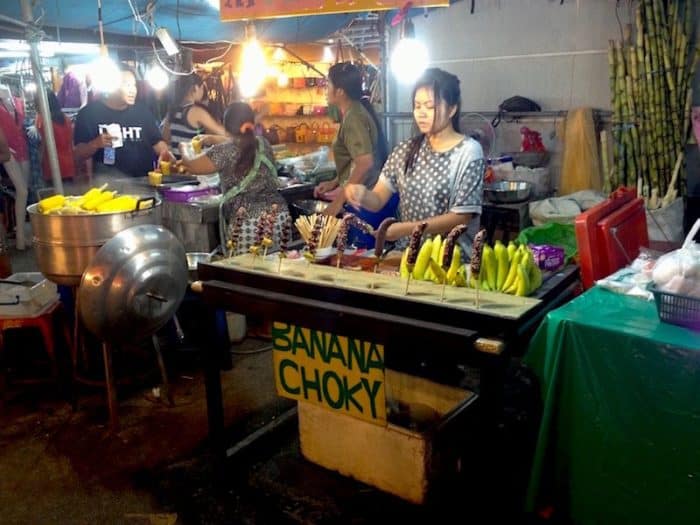
![Top 10 Budget Friendly Hotels in Krabi [for 2024]](https://www.travellingking.com/wp-content/uploads/2023/02/Krabi-idillyic-tropical-hidden-beach-with-white-sand-and-palm-trees-on-Bamboo-island.jpg)
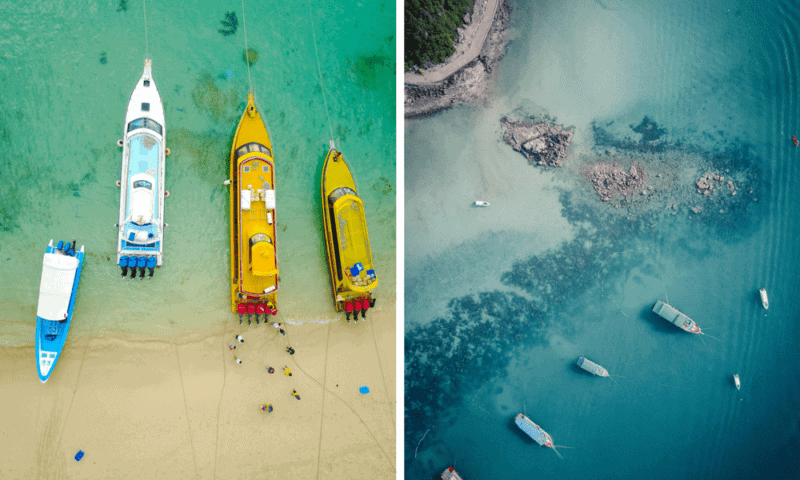
![Where to Stay in Bangkok [Best Places to Stay for 2024]](https://www.travellingking.com/wp-content/uploads/2023/11/Where-to-stay-in-Bangkok-cover.png)
